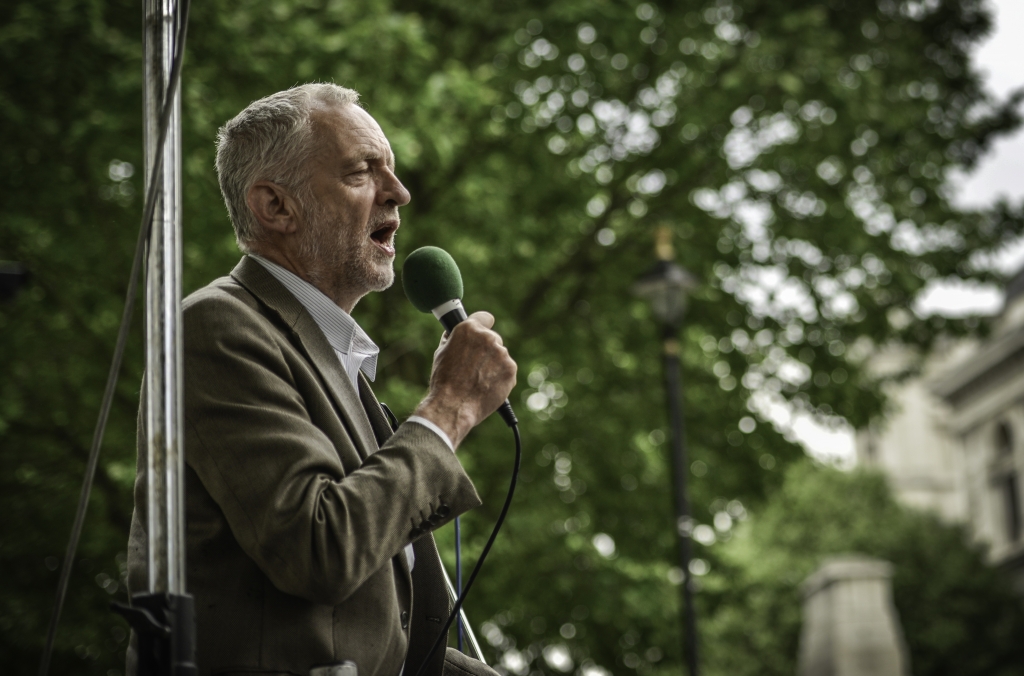
 Jeremy Corbyn has recently been described as a “demagogue”; but his appeal is derived from his character rather than from rhetorical strategies, explain Judi Atkins and Nick Turnbull. Here, they discuss the rhetoric of distance deployed by his critics, and the inevitable dilemma Corbyn will face if he is to appeal to an audience beyond Labour grassroot members.
Jeremy Corbyn has recently been described as a “demagogue”; but his appeal is derived from his character rather than from rhetorical strategies, explain Judi Atkins and Nick Turnbull. Here, they discuss the rhetoric of distance deployed by his critics, and the inevitable dilemma Corbyn will face if he is to appeal to an audience beyond Labour grassroot members.
In a recent article in the Guardian, Deborah Orr highlights the similarities between Jeremy Corbyn and Bernie Sanders. She writes: ‘Both men are longstanding leftwing demagogues, the pristine idealism of their rhetoric untainted by the low politics that high office demands’. Orr’s description of Corbyn as a ‘demagogue’ is interesting, given that the term more readily invokes figures such as Nigel Farage and Donald Trump.
Nonetheless, Corbyn’s rhetoric does contain elements of ‘soft’ demagoguery, whereby a speaker typically flatters his or her audience ‘by claiming that they know what is best, and makes a point of claiming [their] closeness [to them] by manner or gesture’. But one way in which Corbyn’s rhetoric differs from conventional populist figures in that he usually talks about Labour Party members, rather than an abstract notion of ‘the people’. So, can Corbyn be regarded as populist, or at least, as using populist rhetorical strategies?
In rhetorical terms, much of Corbyn’s appeal is derived from his character. Although some have described his speeches as dull and his style as uncharismatic, he has been interpreted as authentic for precisely these qualities. Indeed, for the Labour audience, Corbyn’s lack of polish provides confirmation of both his authenticity and his outsider status, as does his lack of evasion on tricky questions. He is the embodiment of ‘anti-spin’, the antithesis of ‘professional’ politicians in general and of New Labour in particular. This quality was particularly evident in the Labour leadership contest, in which the three mainstream candidates ‘failed to inspire excitement or hope’, and so were unable to connect emotionally with party members.
In contrast, a Corbyn supporter spoke for many young people when she described him as someone who ‘talks like a human being, about the things that are real to me’. This is indicative of a different personality, who is regarded as passionate and trustworthy while promoting very different policies from the ideological mainstream. He probably had little intention of generating the fervour manifest among Labour members and supporters during his election campaign. But the audience bestowed populist appeal upon him, seeing in him a truer reflection of themselves and a real alternative to what had gone before.
Whereas populist figures typically align themselves with ‘the people’ in opposition to a remote, unresponsive elite, Corbyn’s concern is with the distance between the Labour membership and ‘those who feel that Labour left them’ on the one hand, and the parliamentary party on the other. He explains that: ‘We need to be more open, more democratic, more respectful of all our members’ knowledge and experience. We need to be less of a machine and more of a movement’. Corbyn thus aligns himself with the grassroots and against mainstream Labour, and he is able to do so because of his longstanding record of defying the party whip – which in turn reinforces his ‘outsider’ status.
Broadly speaking, we can identify two responses from Corbyn’s critics. Their first strategy is intended to bring him back into the Westminster bubble through attacks on his character. An example is the Telegraph’s report that Corbyn ‘has had his own version of a makeover as the veteran left winger prepares to become leader of the Labour Party’. The newspaper illustrated this with a ‘before’ photograph of Corbyn with his ‘trademark vest and red biro poking out of his top pocket’ and an ‘after’ picture of him wearing an ‘ironed blue shirt’. This is an attempt to present him as being just like every other MP, who is concerned with his image in a bid to generate popular appeal.
The second tactic is to make him appear more extreme. For instance, the Telegraph claims he has questions to answer about his ‘links to extremists’ after having once introduced members of Hezbollah and Hamas as ‘friends’, while Tony Blair warned that ‘If Jeremy Corbyn becomes leader it won’t be a defeat like 1983 or 2015 at the next election. It will mean rout, possibly annihilation’.
Underlying both responses is the rhetoric of distance: Corbyn’s critics are either trying to bring him back into the mainstream or to push him further beyond the limits of acceptability. But the weakness of such attacks is obvious, as they move in opposing directions. Ultimately, Labour moderates have faced the fragmentation of the internal party audience after many years of dissatisfaction with the party’s move towards the political centre. Appealing to that audience, and to the audience of non-member Labour voters, posits a choice between two perceived evils: left-wing populism and the mainstream convention.
___
 Judi Atkins is Lecturer in Politics at Coventry University. She has published several articles on the relationship between rhetoric, ideology and policy in Britain, and is author of Justifying New Labour Policy (Palgrave Macmillan, 2011) and co-editor of Rhetoric in British Politics and Society (Palgrave Macmillan, 2014). She tweets @DrJudiAtkins
Judi Atkins is Lecturer in Politics at Coventry University. She has published several articles on the relationship between rhetoric, ideology and policy in Britain, and is author of Justifying New Labour Policy (Palgrave Macmillan, 2011) and co-editor of Rhetoric in British Politics and Society (Palgrave Macmillan, 2014). She tweets @DrJudiAtkins
 Nick Turnbull is Lecturer in Politics at the University of Manchester. He is the editor of Interpreting Governance, High Politics, and Public Policy (forthcoming Routledge, 2016) and he tweets @nicktmanchester.
Nick Turnbull is Lecturer in Politics at the University of Manchester. He is the editor of Interpreting Governance, High Politics, and Public Policy (forthcoming Routledge, 2016) and he tweets @nicktmanchester.







